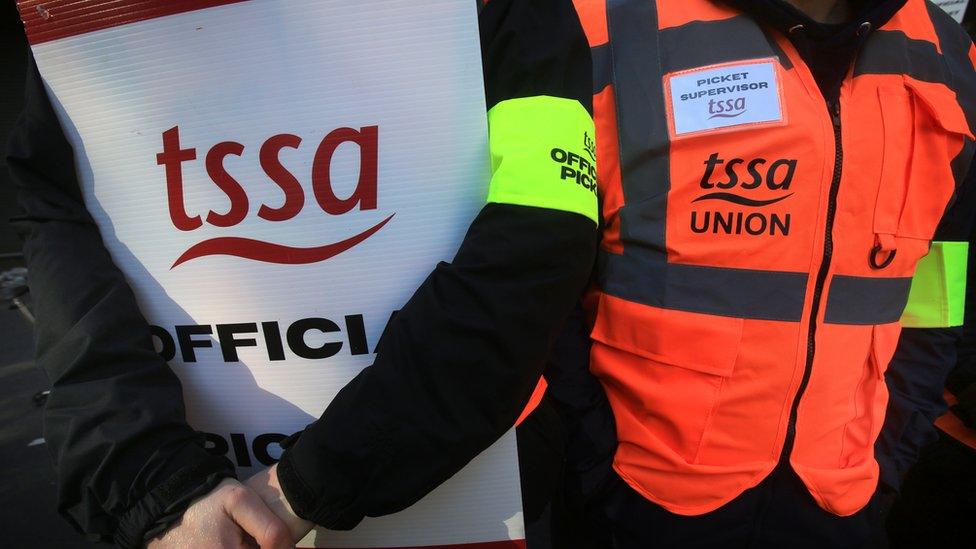TSSA: Report finds bullying and harassment at transport union
- Published

An independent report has found sexual harassment, discrimination and bullying at the TSSA transport union.
The inquiry led by a Labour peer and lawyer said union bosses had "enabled" poor behaviour through "wilful blindness, power hoarding and poor practices".
It said current interim general secretary Frank Ward and other senior leaders should leave their roles.
The TSSA said it recognised that action was required to "address failings".
"The report makes difficult reading and highlights serious issues that the union needs to face up to and tackle," it said in a statement.
"It is clear from this report that our union has not followed the values we aspire to for our members," it added.
The Transport Salaried Staffs Association (TSSA) represents thousands of railway, ferry, and bus staff and is affiliated to the Labour Party.
Its membership includes control centre and ticket office staff, as well as engineers and workers in various support roles.
The union commissioned the report last September following allegations of sexual harassment against the then general secretary Manuel Cortes. The BBC has approached him for comment.
The Guardian has reported that Mr Cortes denied any wrongdoing and apologised for any hurt caused by his behaviour.
Labour peer Baroness Helena Kennedy KC, who conducted the probe, was tasked with investigating behaviour across the union, and how it deals with complaints.
Mr Cortes retired in October, and was replaced by Mr Ward on an interim basis. The BBC has asked the TSSA whether Mr Ward will be standing down in the wake of Baroness Kennedy's report.
'Toxic' culture
In her report, she said she had taken evidence from over 50 people and uncovered a "series of appalling incidents" within the organisation.
These included incidents of inappropriate and sexual touching, sexual assault, coercive behaviour and the humiliation of staff, she said.
She said she had received submissions about the union's leadership involving "violent, sexualised language", belittling women for their appearance, and non-consensual touching.
Those giving evidence described the culture within the union as "toxic", "sexist", "vindictive" and "misogynistic", she wrote.
"I also heard evidence of failings in due process, natural justice and governance," she added.
"Beyond specific instances, I have found a culture that is stuck, it seems, in a morass of staff upset and grievance - on matters relating not just to sexual harassment and assault - but also to the bullying, silencing and marginalising of staff."
The TSSA said it would "take time to thoroughly understand the report and its recommendations," and would implement an action plan in response.
The Trades Union Congress, an umbrella body for unions, said Baroness Kennedy's report "must lead to genuine culture change". Its general secretary Paul Nowak said he had asked for a meeting with the TSSA to "discuss next steps".